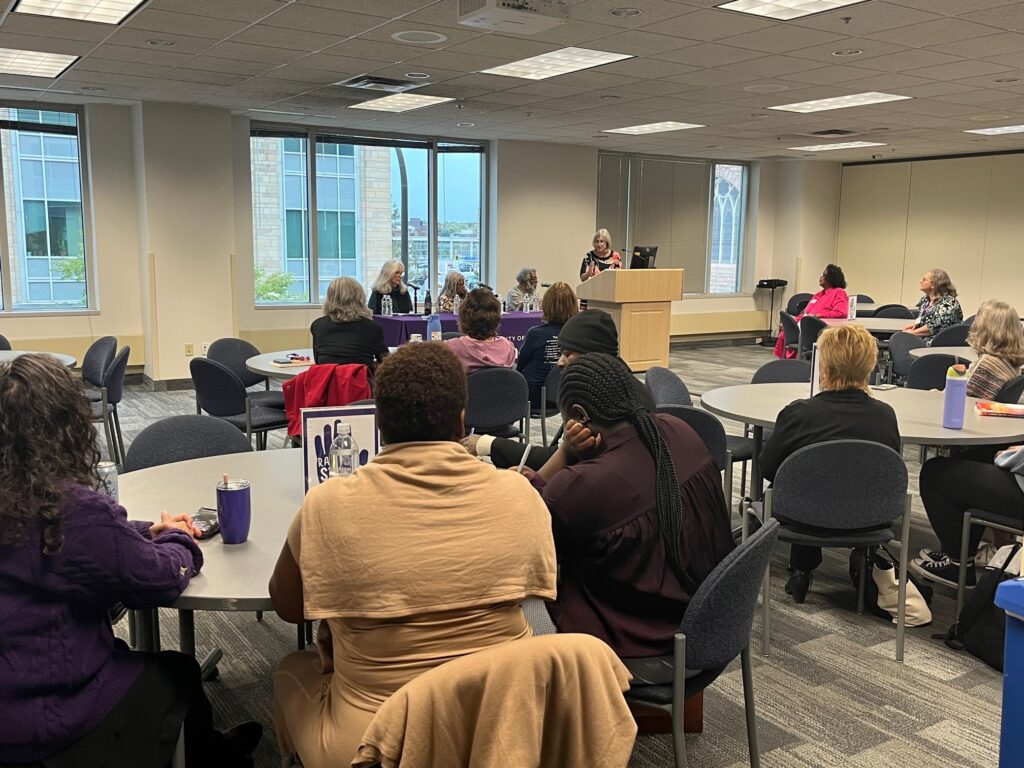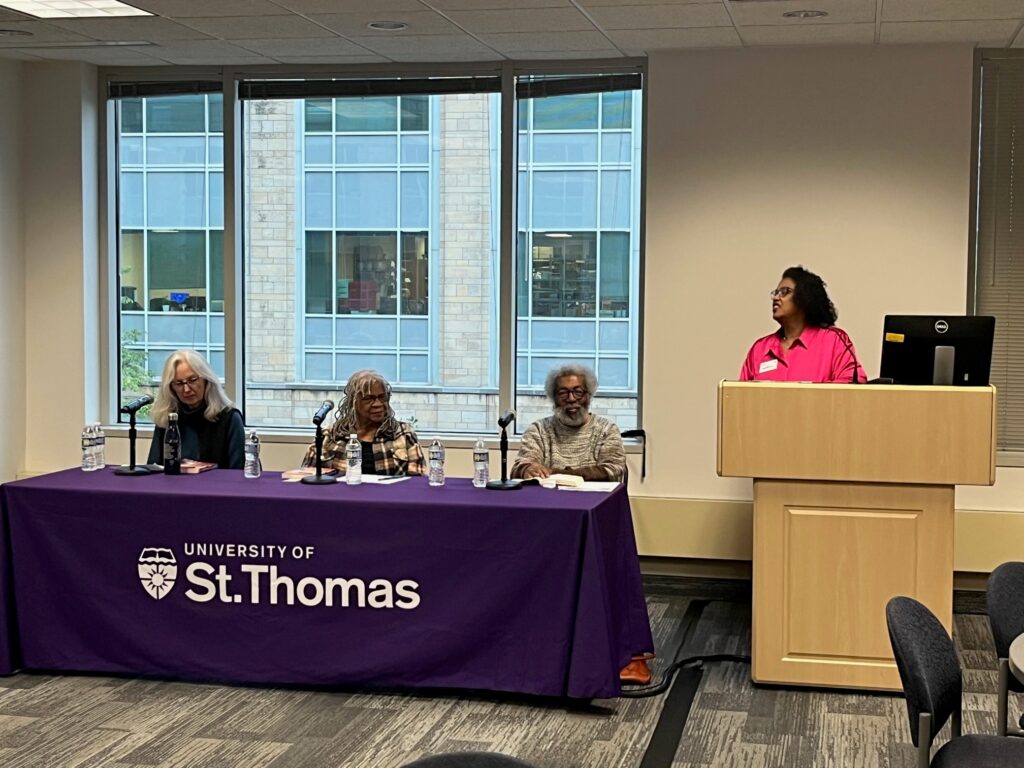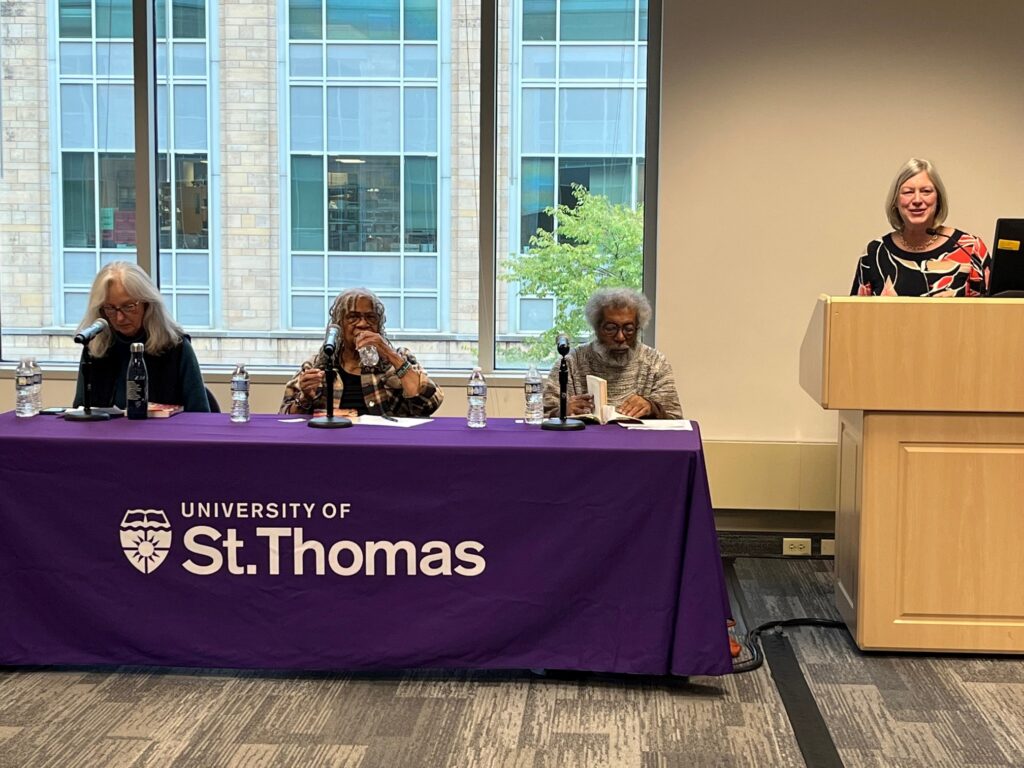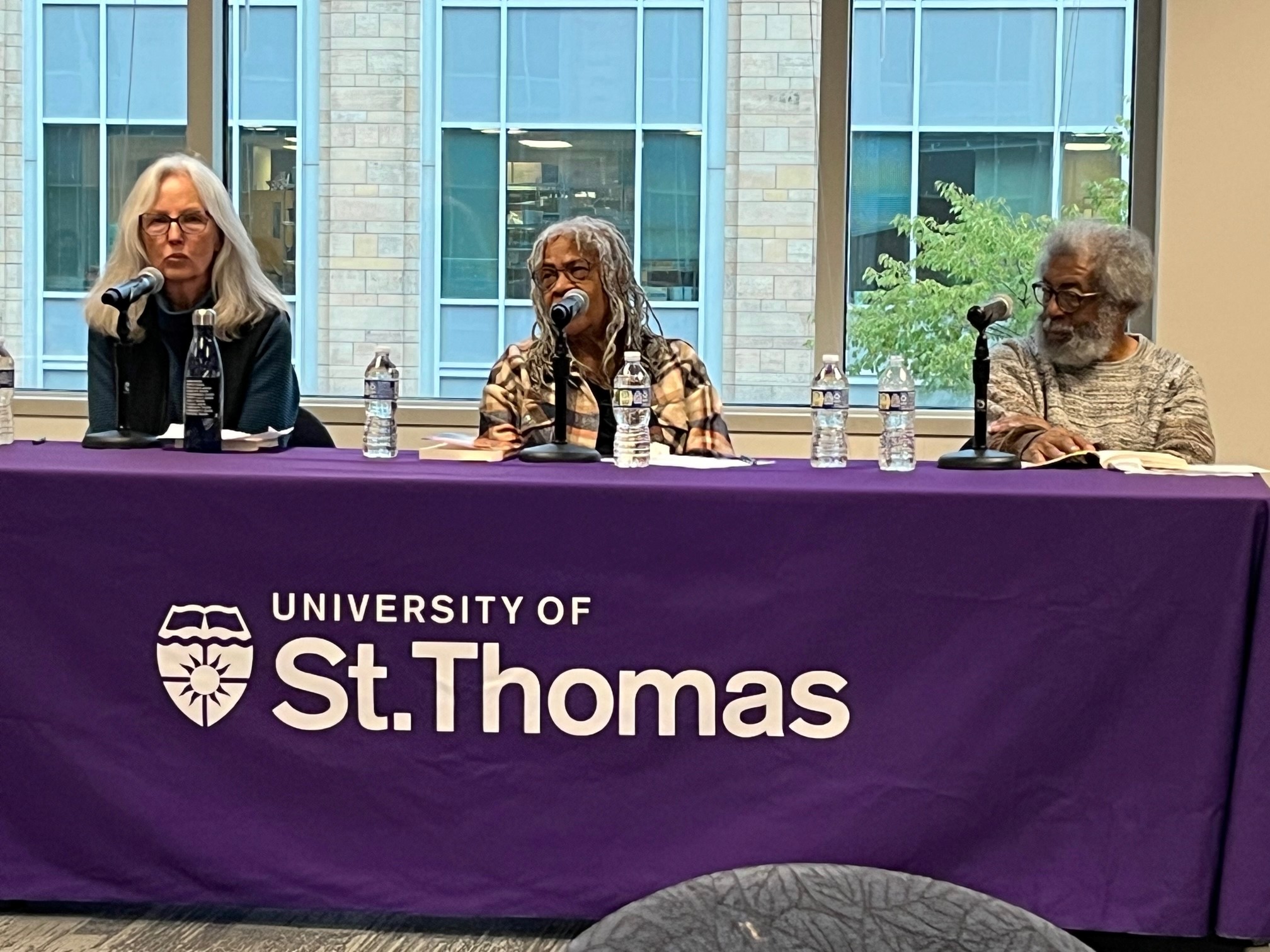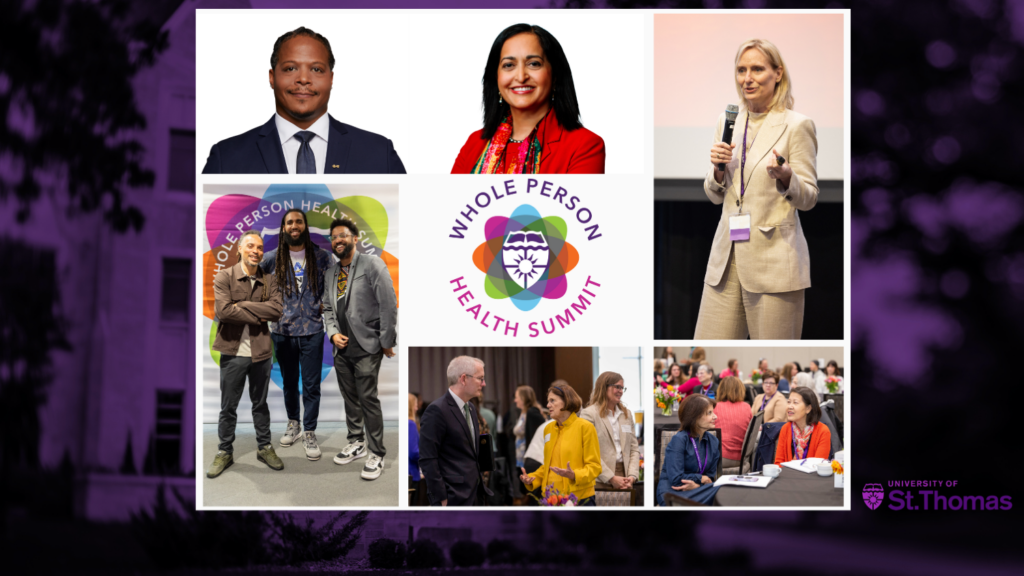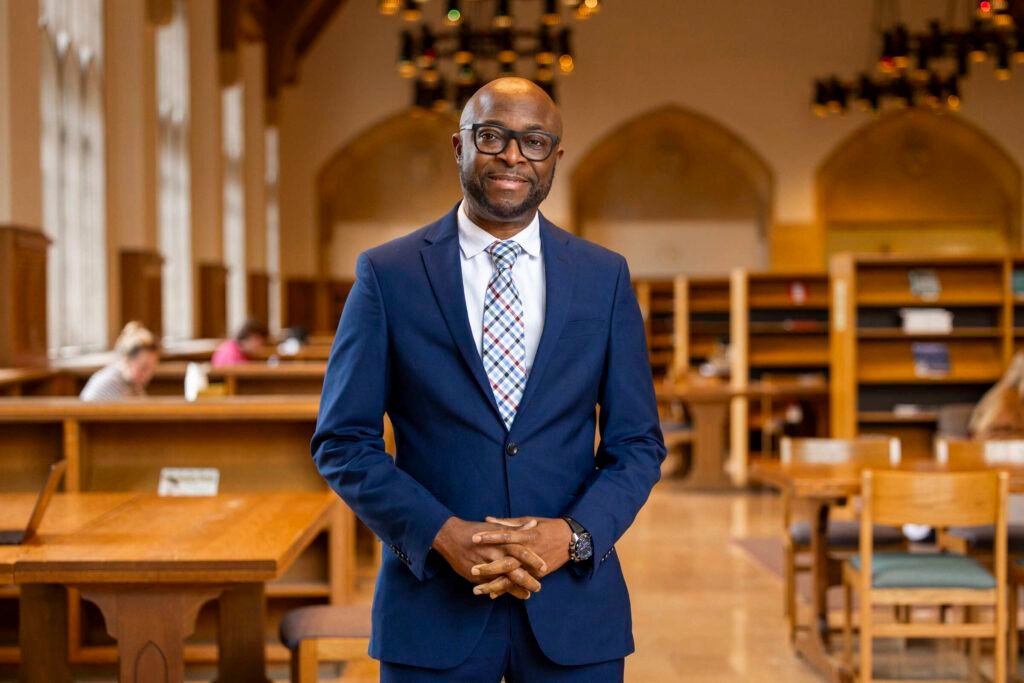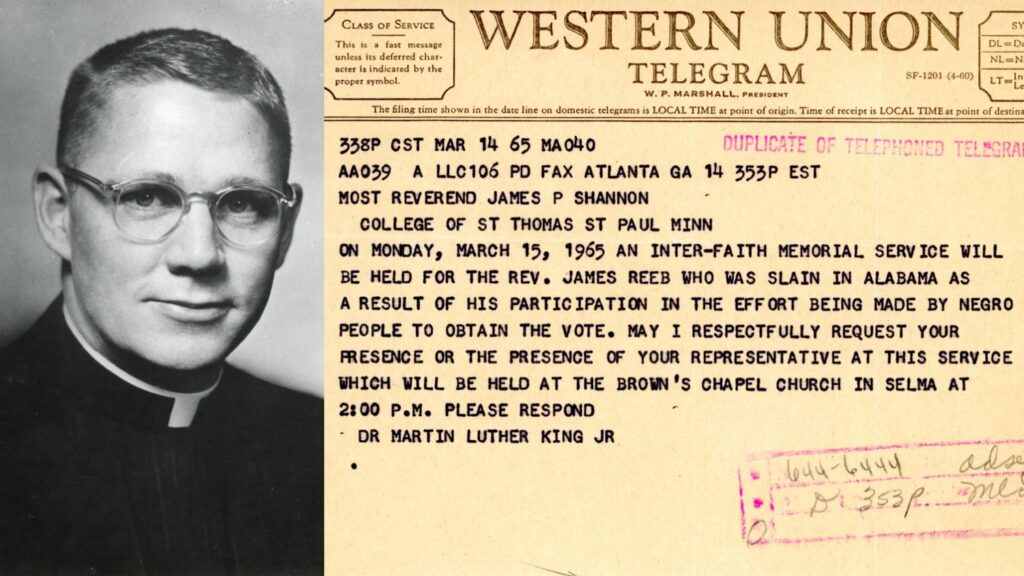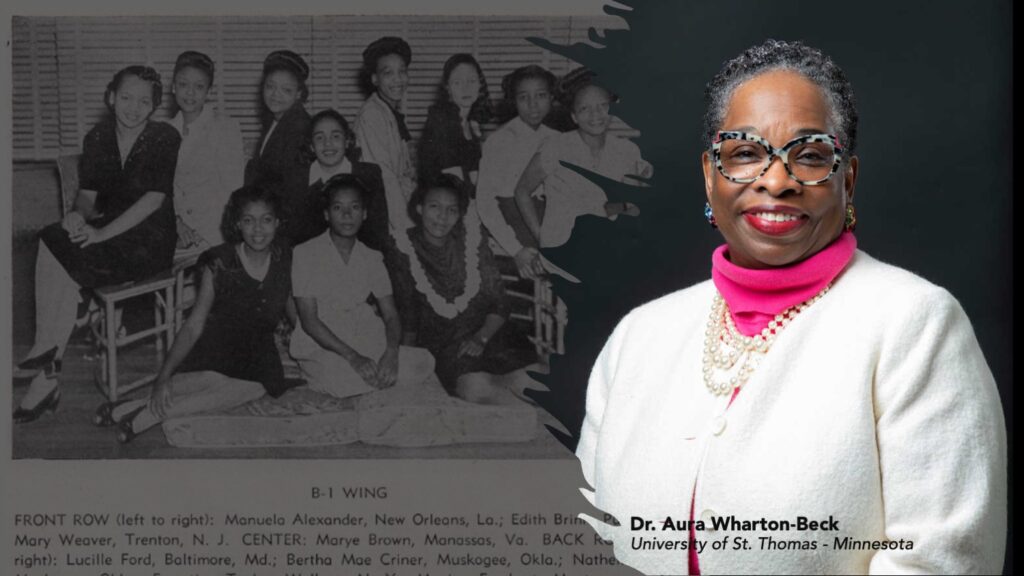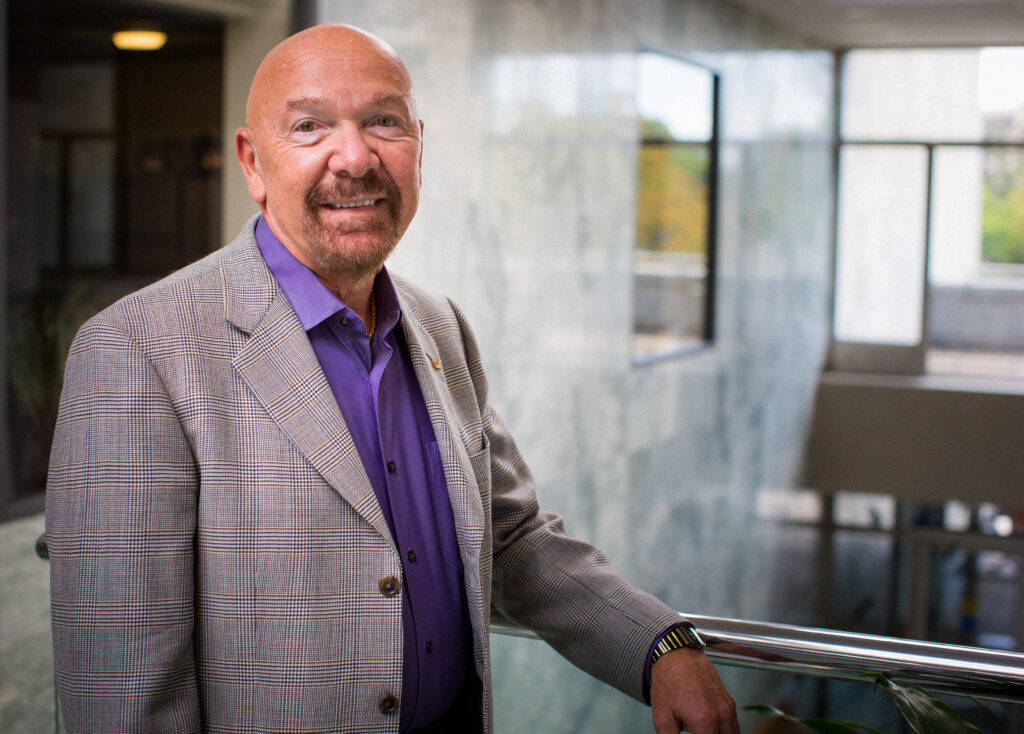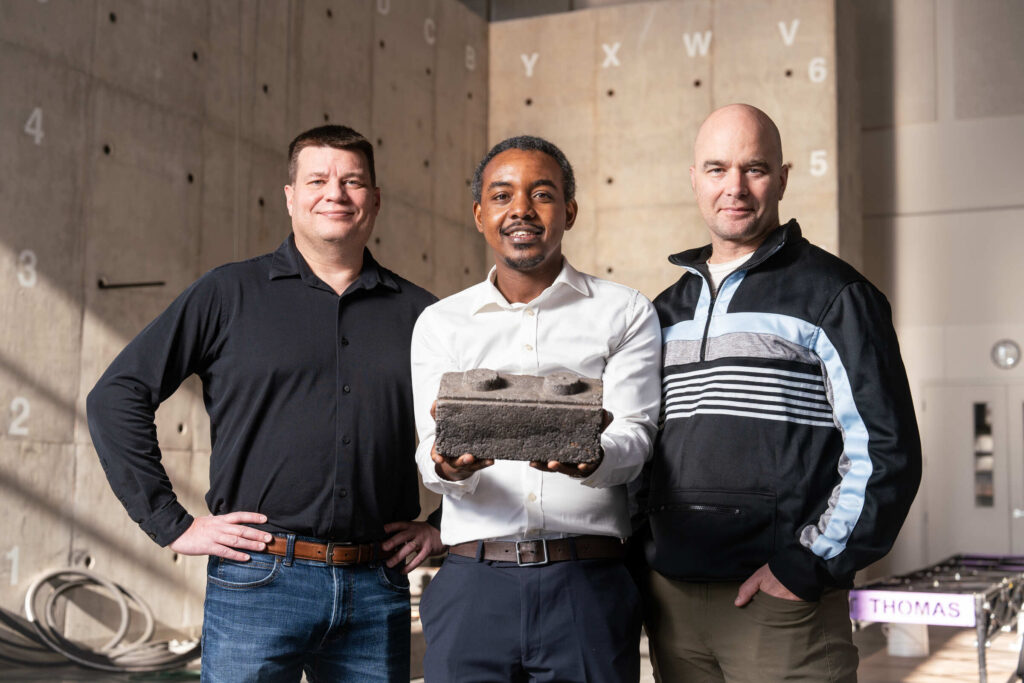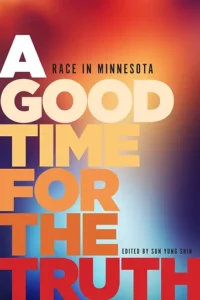
Three local award-winning authors convened on the University of St. Thomas Minneapolis campus in October to share their inspiring narratives and how they paved the way for other diverse voices to tell their stories through prose.
The School of Education at St. Thomas, led by Dean Amy Smith, organized the panel discussion on diversity, equity and inclusion, featuring esteemed panelists and authors Carolyn Holbrook, David Lawrence Grant, and Diane Wilson.
The event was part of the School of Education's Dean's Forum, a platform established in 2018 to facilitate conversations about race and education.
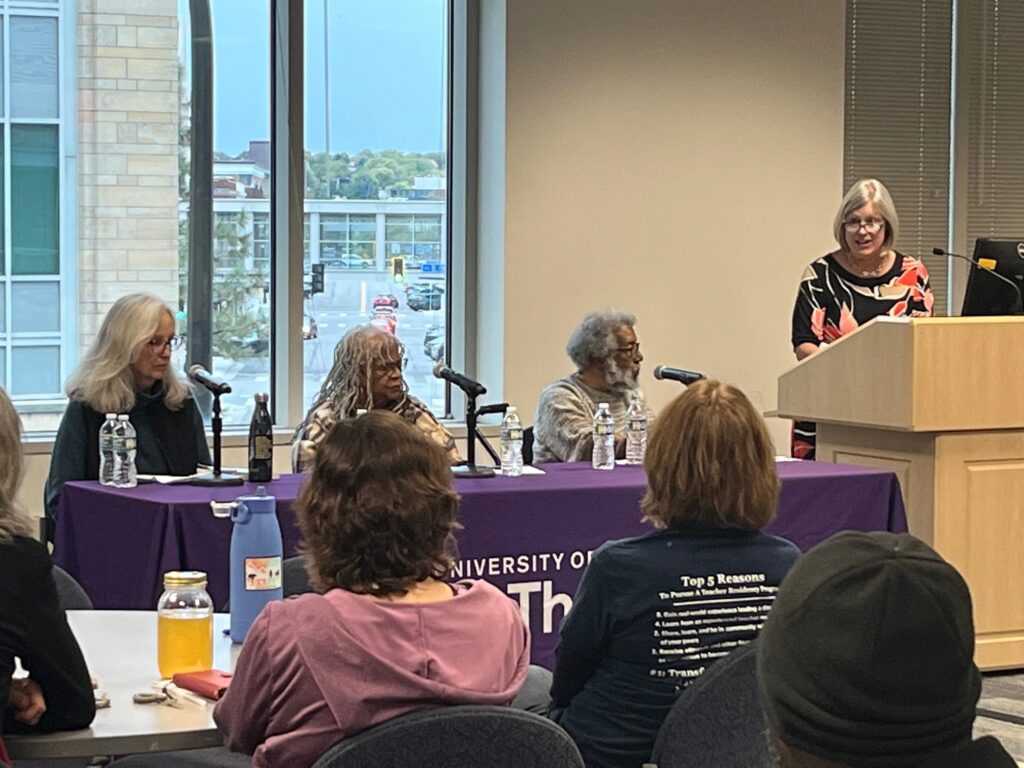
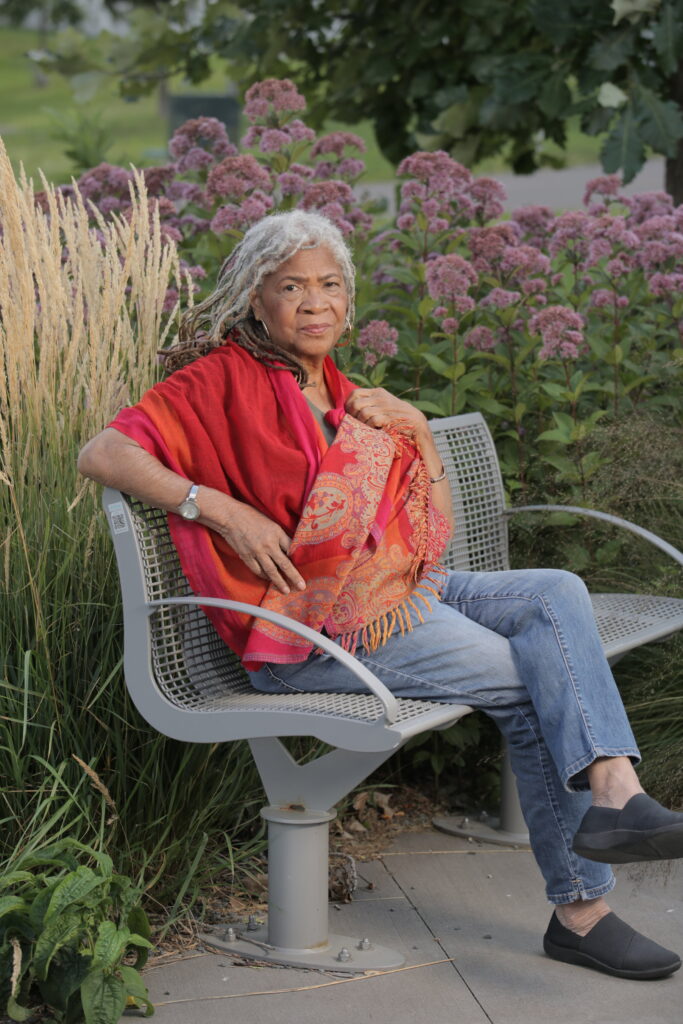
The authors discussed the published anthology, A Good Time for the Truth, which was collectively authored by the panelists and 13 additional authors. The book, published in 2016, was edited by Sun Yung Shin, who personally invited each author to contribute to the collection.
“She decided she wanted 16 writers in this book, and I was very impressed by the people she chose because she did not just choose an African American and Asian and Native person. She went within and chose a Vietnamese person, a Korean person, a Dakota person, an Ojibwe person; African Americans and Africans; a Bolivian and a Peruvian, so she could get a broad range of voices to talk about our experiences being a person of color in Minnesota,” said Holbrook, an accomplished author, educator, and artist best-known for her book Hope in the Struggle. “She was very intentional, and I felt very honored when she asked me if I would write a piece.”
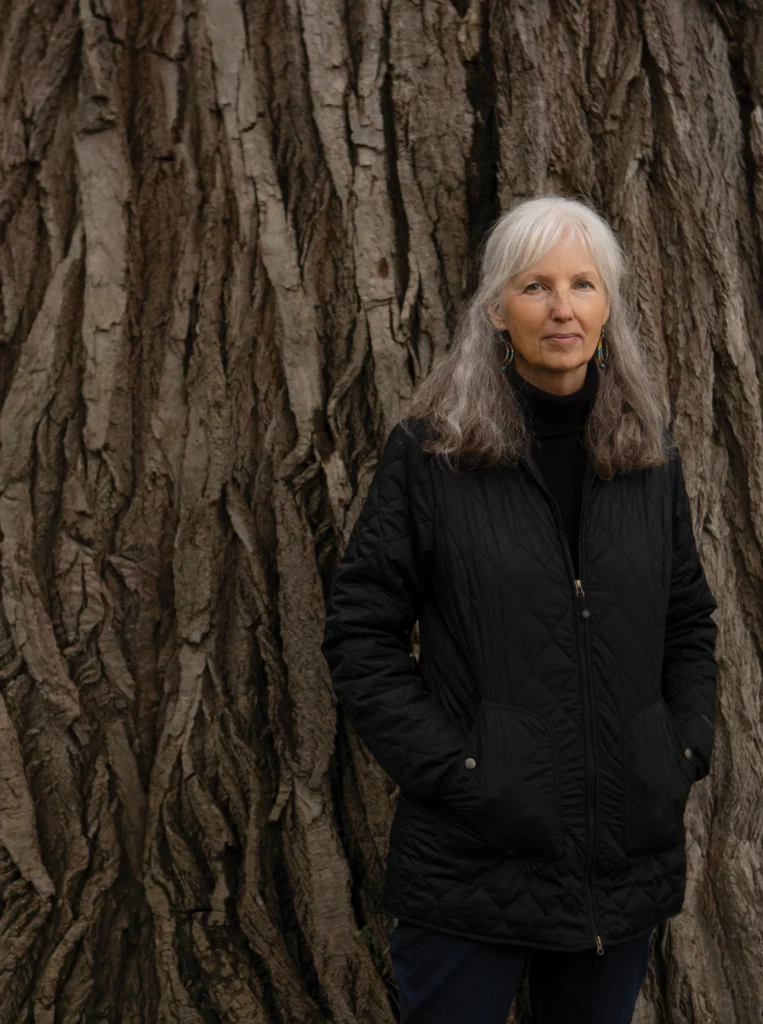
Diane Wilson, a Dakota writer and educator who has published four award-winning books as well as numerous essays, says being a part of the anthology gave her a launching pad for a story about the environment that eventually became her novel, The Seed Keeper, which received the 2022 Minnesota Book Award for fiction. She’s previously published a memoir, Spirit Car: Journey to a Dakota Past, which explored her personal and community experience with racism.
“The issue of race is so much a part of this conversation around climate change and the conversation around food sovereignty,” shared Wilson, who also served as an adjunct English faculty member in St. Thomas’ Dougherty Family College. “Food has been weaponized as a method of control and also a way of dominating other communities, but what I have really come to understand is that, as human beings, we've moved away from that disconnect between human beings and our other relative (the land). And so that is where my work has taken me. I am writing essays right now to explore that idea of how do we look at the ways in which we are in relationship with the land.”
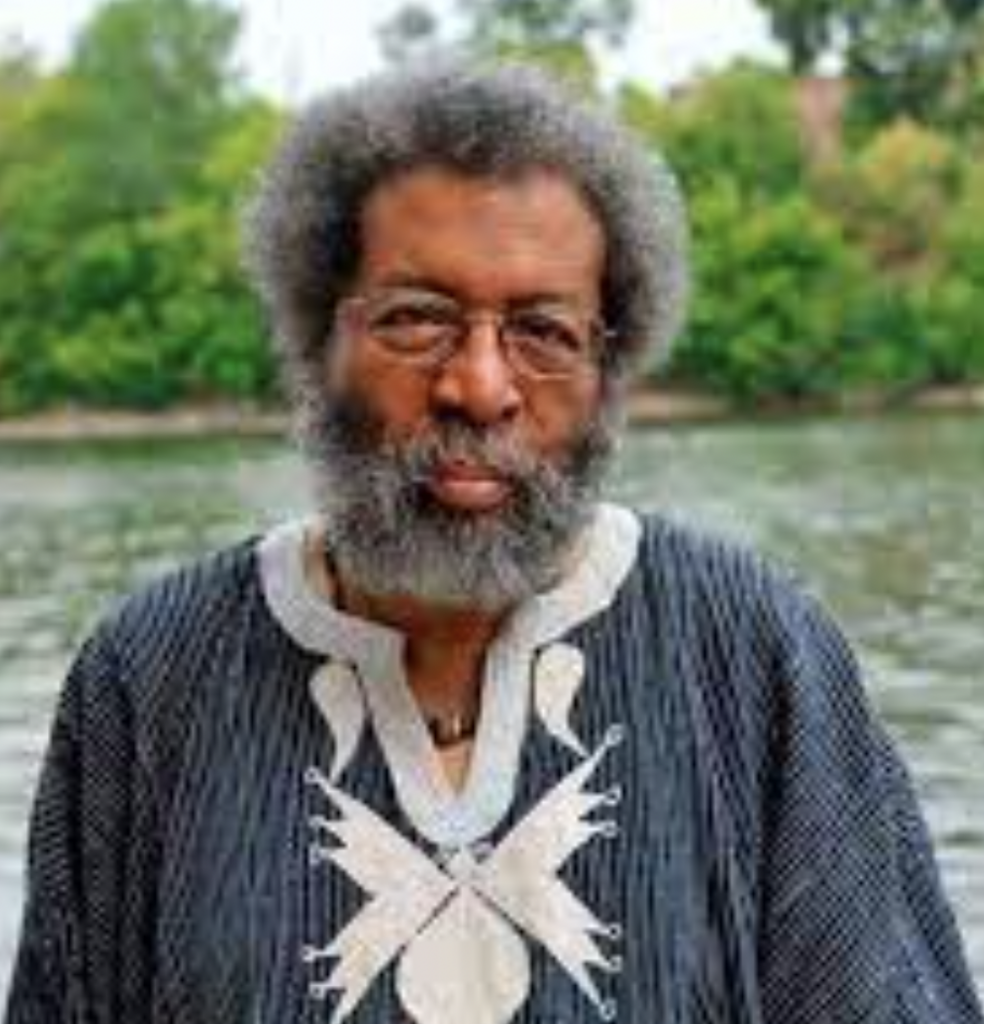
Author David Lawrence Grant centered his “People Like Us” essay for the book on building relationships with new-found relatives after his son gifted him a DNA kit. The multitalented screenwriter and documentary filmmaker said he made contact with relatives in Ghana, Mali, Congo, Angola, Namibia and Senegal. “So that's been an incredibly interesting journey, and I've been writing about it,” he said. “But simultaneous to finding all those African kin on the continent, I came across literally hundreds of white kin who are related to me because their ancestors owned ancestors of mine. The interesting thing is navigating the minefield of trying to figure out what these relationships are and could be.”
During each Dean’s Forum, attendees are reminded of the four agreements of courageous conversations: stay engaged, experience discomfort, speak your truth and expect and accept non-closure.
